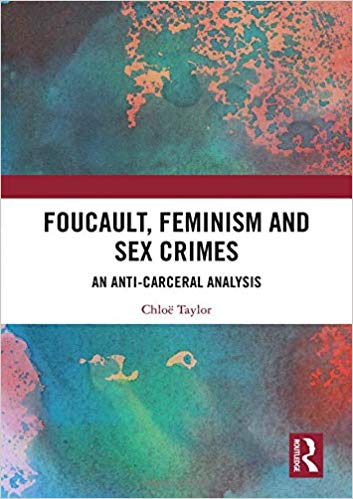By: Michael Strean
An associate professor at the University of Alberta published a critique of the correc- tions system and on prison feminism.
Dr. Chloe Taylor’s new book Foucault, Feminism and Sex-Crimes: an Anti-Car- ceral Analysis is her response to Michel Foucault’s controversial idea that sex-crimes ought to be treated as crimes of violence only.
Michel Foucault is a French philosopher and sociologist. Some of his works include:Discipline and Punish (1975), The History of Sexuality (1976) and Madness and Civilization (1961). Much of Foucault’s work hinges on a critique of labelling or categoriz- ing people based on things like sexuality or mental illness.
“He recognizes the ways that these categories can be both pathologizing, and oppressive and limiting. But also ways that they can be empowering,” said Taylor.
Dr. Taylor gives the example of identifying as homosexual. This identity may mean suffering oppression, but she explains that there would not have been a gay rights movement if there was no adoption of the identity of being gay.
Responding to Foucault, she believes that his writing lacks a feminist analysis that she provides in her book.
So what does anti-carceral mean exactly?
“Sometimes de-carceral is used a less polarizing term,” said Taylor. “I liked ‘carceral’ rather than something like prison abolitionist.”
Dr. Taylor uses the term anti-carceral because it takes into account that there are many types of incarceration. The traditional jail that we all think of is not the only place where people get locked up.
“We have many institutions of confinement and incarceration in our society, not just prisons. A danger of prison-abolitionism is that people will sometimes say ‘okay, yes. We’re not going to put these people in prison but we might put them into drug-rehabilitation programs against their will, and we’re going to put others in hospitals and psychiatric wards against their will, and just find other kinds institutions of confinement.’ It remains a carceral society.”
Dr. Taylor reminds us that the vast majority of rape cases are unreported. “Even when it is reported, the police don’t believe it, judges don’t believe it. Even in the tiny minority of rape cases that get reported to the police and go to trial, the person doesn’t end up in prison anyway,” said Taylor. “We need to debunk the myth that rapists are in prison.”
When it comes to actual response to crime, however, the direct solution Dr. Taylor would offer is something called ‘transformative justice’. A more familiar term might be ‘restorative justice’, which means having a deeper community response to crime.
The focus of transformative justice is to make the necessary changes in the community that created the crime. Part of this change is to rehabilitate and re-incorporate offenders into this community.
“Maybe what we need to do is transform society so that these things don’t happen anymore,” said Taylor.





